The Vietnam War 1954-1975
History
Agent Orange
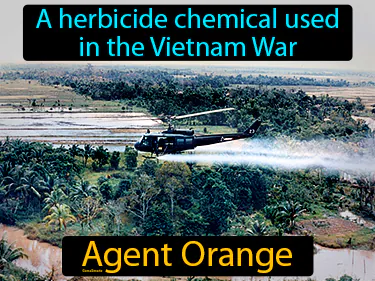
A herbicide chemical used in the Vietnam War, Agent Orange. It was used by the U.S. military to remove forest cover and crops that provided food and support to the enemy.
Army of the Republic of Vietnam
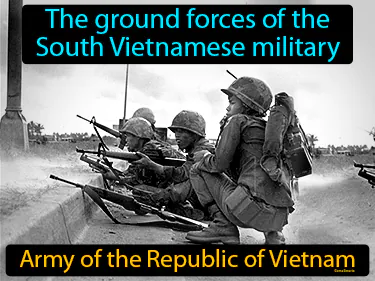
The ground forces of the South Vietnamese military. Army of the Republic of Vietnam. The Army of the Republic of Vietnam was the main military force for South Vietnam during the Vietnam War.
credibility gap
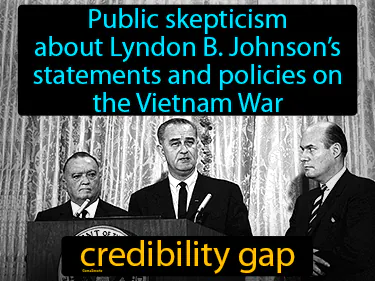
Public skepticism about Lyndon B Johnsons statements and policies on the Vietnam War. Credibility gap. The credibility gap refers to the difference between what the government says and what the public believes, often leading to distrust.
Dean Rusk
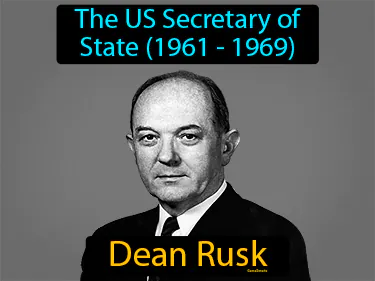
The US Secretary of State 1961 - 1969 was Dean Rusk. He was a key figure in U.S. foreign policy during the Vietnam War era.
Dien Bien Phu
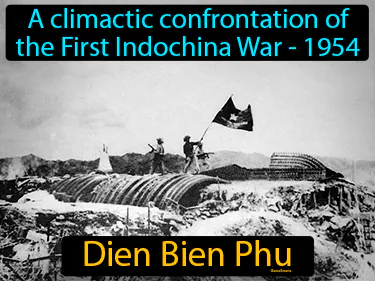
A climactic confrontation of the First Indochina War -1954. Dien Bien Phu. It was the decisive battle where Vietnamese forces defeated the French, leading to the end of French colonial rule in Indochina.
domino theory
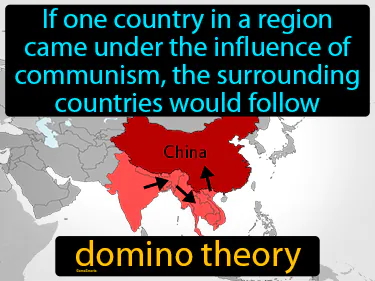
If one country in a region came under the influence of communism, the surrounding countries would follow. Domino theory. Domino theory is the idea that if one country falls to communism, nearby nations will also succumb, like a row of falling dominoes.
dove
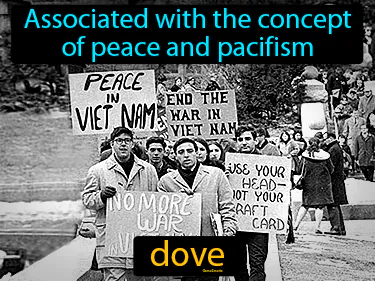
Associated with the concept of peace and pacifism dove. In history, a dove is a symbol or person advocating for peaceful solutions over conflict or war.
draft
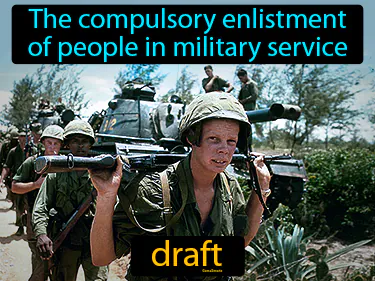
The compulsory enlistment of people in military service. Draft. The draft is a system used by governments to require citizens to serve in the military during times of war.
Eugene McCarthy
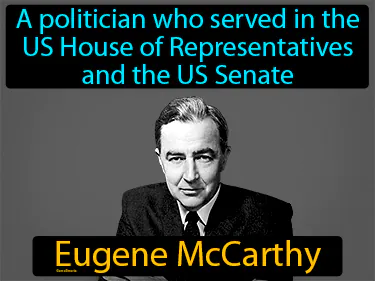
Sought the Democratic nomination in 1968 on an anti-Vietnam War platform. Eugene McCarthy. Eugene McCarthy was a U.S. senator who challenged the Vietnam War policies of President Lyndon B. Johnson.
flexible response
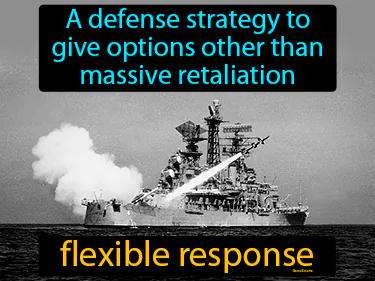
A defense strategy to give options other than massive retaliation. Flexible response. It was a Cold War military strategy that allowed for a variety of responses to threats, instead of relying solely on nuclear retaliation.
Free Speech Movement
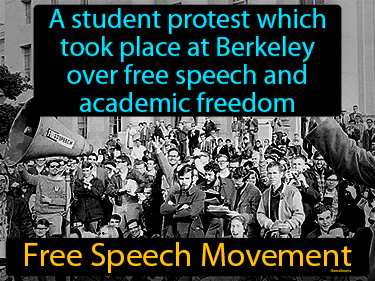
A student protest which took place at Berkeley over free speech and academic freedom. Free Speech Movement. The Free Speech Movement was a 1964 student-led protest at UC Berkeley advocating for the right to political speech and academic freedom on campus.
Geneva Accords
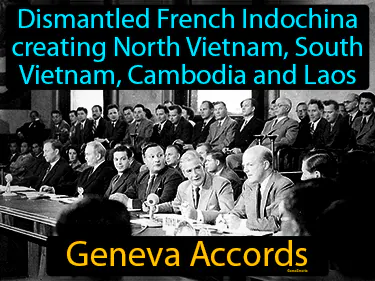
Dismantled French Indochina creating North Vietnam, South Vietnam, Cambodia, and Laos. Geneva Accords. The Geneva Accords were agreements in 1954 that ended the First Indochina War and divided Vietnam into North and South.
hawk
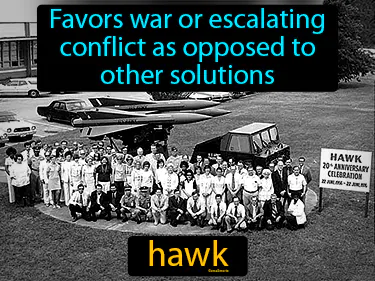
Favors war or escalating conflict as opposed to other solutions. Hawk. In history, a hawk is someone who supports aggressive or military action over diplomatic approaches.
Henry Kissinger
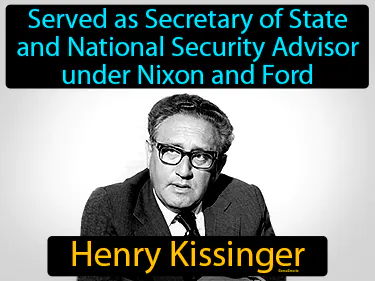
Served as Secretary of State and National Security Advisor under Nixon and Ford. Henry Kissinger. He is a significant figure in U.S. foreign policy known for shaping diplomatic strategies during the Cold War.
Ho Chi Minh
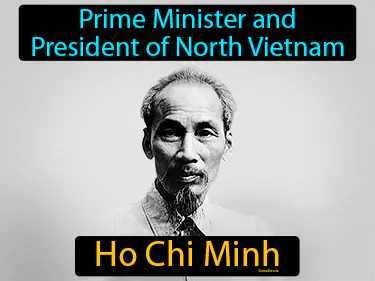
Prime Minister and President of North Vietnam. Ho Chi Minh. Ho Chi Minh was a key communist revolutionary leader who fought for Vietnam's independence and unification.
Ho Chi Minh Trail
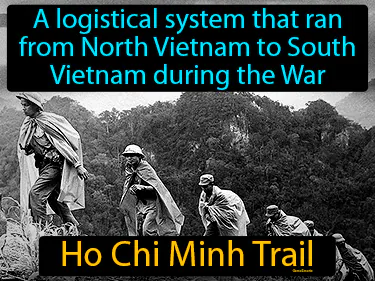
A logistical system that ran from North Vietnam to South Vietnam during the War. Ho Chi Minh Trail. The Ho Chi Minh Trail was a network of routes used by North Vietnam to transport troops and supplies to support the Viet Cong during the Vietnam War.
Kent State University
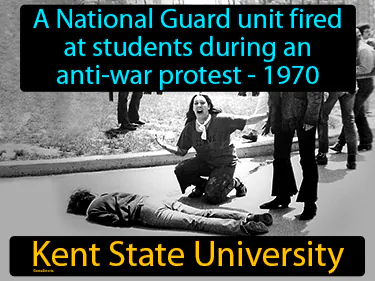
A National Guard unit fired at students during an anti-war protest - 1970. Kent State University. Kent State University is a public research university in Ohio, known for the tragic 1970 incident where four students were killed during a protest against the Vietnam War.
My Lai Massacre
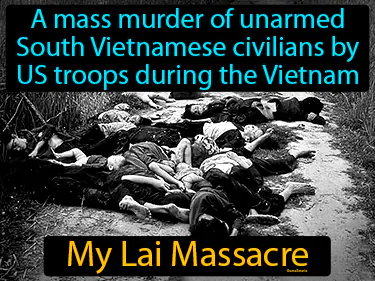
The mass murder of South Vietnamese civilians by US troops. My Lai Massacre. The My Lai Massacre was an incident during the Vietnam War where American soldiers killed hundreds of unarmed Vietnamese civilians in 1968.
napalm
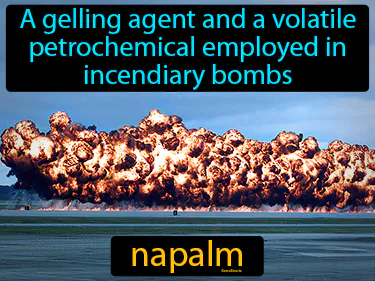
A gelling agent and a volatile petrochemical employed in incendiary bombs. Napalm is a flammable weapon used extensively during World War II and the Vietnam War.
New Left
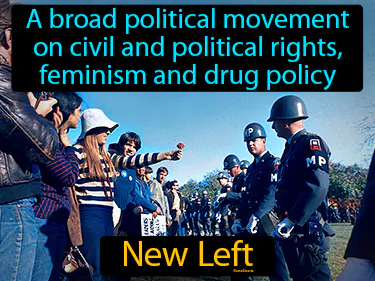
A broad political movement on civil and political rights, feminism and drug policy. New Left. The New Left was a political movement in the 1960s and 1970s that focused on social issues like civil rights, feminism, and opposition to the Vietnam War.
Ngo Dinh Diem
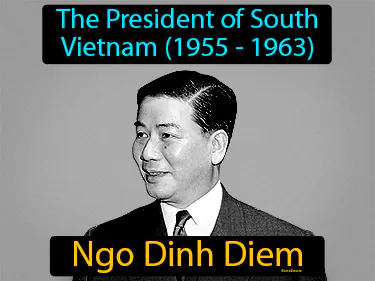
The President of South Vietnam 1955 - 1963. Ngo Dinh Diem. Diem was a controversial leader whose policies led to instability and ultimately his assassination.
Paris Peace Accords
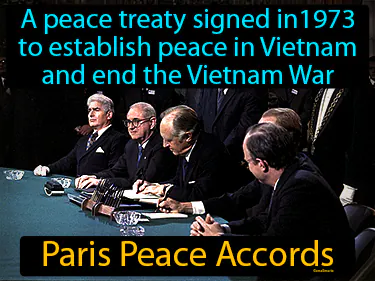
A treaty signed in 1973 to end the Vietnam War. The Paris Peace Accords were an agreement to establish peace and end direct U.S. military involvement in Vietnam.
Pentagon Papers
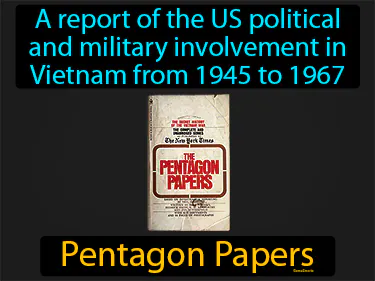
A report of the US political and military involvement in Vietnam from 1945 to 1967. Pentagon Papers. The Pentagon Papers revealed the U.S. government's secret decision-making and policy actions regarding the Vietnam War.
Richard Nixon
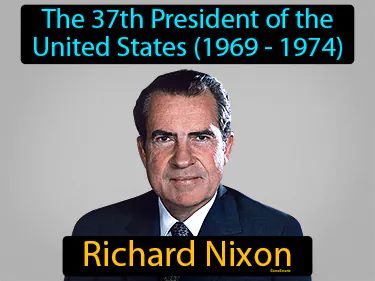
The 37th President of the United States 1969 - 1974, Richard Nixon. Richard Nixon is best known for resigning from office due to the Watergate scandal.
Robert Kennedy
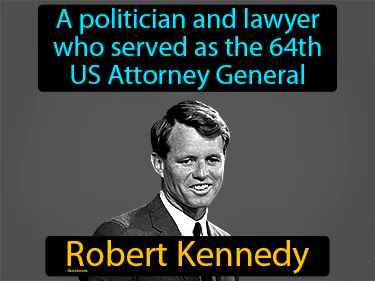
A politician and lawyer who served as the 64th US Attorney General. Robert Kennedy was a significant figure in American history, known for his advocacy for civil rights and his role during the 1960s.
Robert McNamara
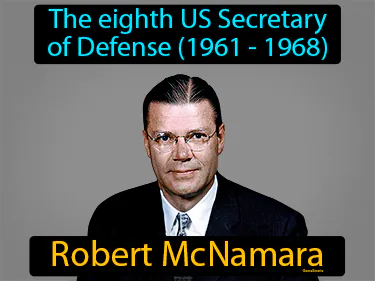
The eighth US Secretary of Defense 1961 - 1968. Robert McNamara. Robert McNamara was a key figure in the Vietnam War as he played a major role in shaping U.S. military strategy.
search and destroy
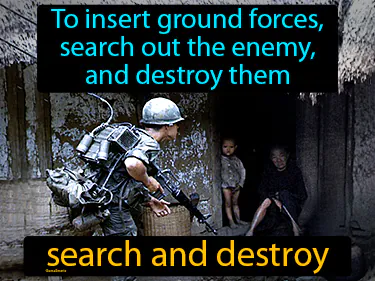
To insert ground forces, search out the enemy, and destroy them. Search and destroy. Search and destroy was a military strategy used during the Vietnam War to locate and eliminate enemy forces.
silent majority
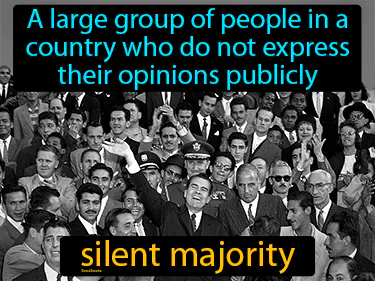
A large group of people in a country who do not express their opinions publicly. Silent majority. In history, the silent majority refers to individuals who do not publicly voice their views but can influence significant political change through their collective voting power.
Students for a Democratic Society
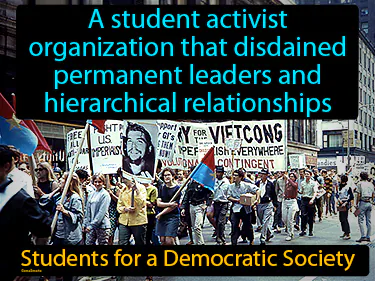
A student activist organization that disdained permanent leaders and hierarchical relationships. Students for a Democratic Society. It was a key organization in the 1960s U.S. civil rights and anti-Vietnam War movements, advocating for social change and participatory democracy.
Tet Offensive
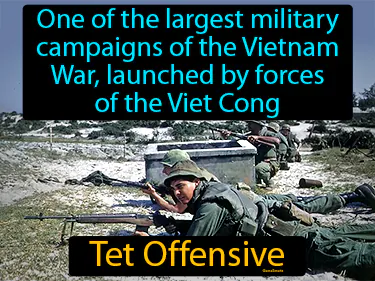
One of the largest military campaigns of the Vietnam War, launched by forces of the Viet Cong. The Tet Offensive was a surprise series of attacks during the Vietnam War that drastically shifted public perception of the conflict.
Tonkin Gulf Resolution
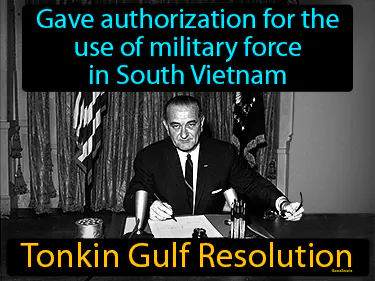
Gave authorization for the use of military force in South Vietnam. Tonkin Gulf Resolution. The Tonkin Gulf Resolution was a 1964 Congressional decision that allowed the U.S. president to use military power in Vietnam without a formal declaration of war.
Viet Cong
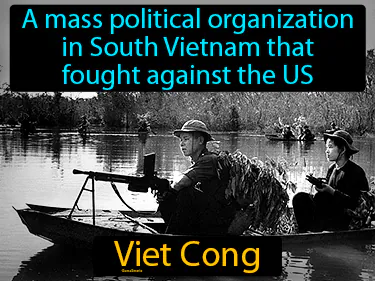
A mass political organization in South Vietnam that fought against the US. Viet Cong. The Viet Cong were a communist group that fought against the US and South Vietnamese government during the Vietnam War.
Viet Minh
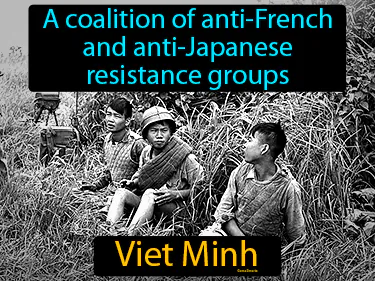
A coalition of anti-French and anti-Japanese resistance groups. Viet Minh. The Viet Minh was a Vietnamese independence movement led by Ho Chi Minh that aimed to free Vietnam from colonial rule.
Vietnamization
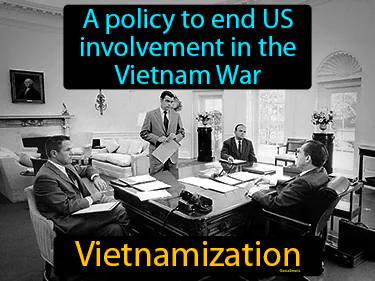
A policy to end US involvement in the Vietnam War. Vietnamization. Vietnamization was a strategy to gradually withdraw American troops and transfer combat roles to the South Vietnamese forces.
War Powers Act
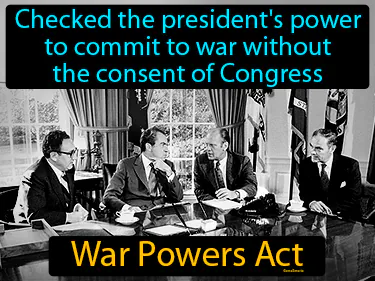
Checked the president's power to commit to war without the consent of Congress. War Powers Act. The War Powers Act is a U.S. law that limits the president's ability to deploy military forces without Congressional approval.
William Westmoreland
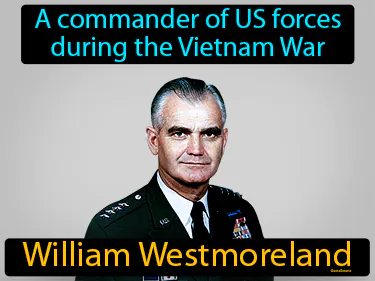
A commander of US forces during the Vietnam War, William Westmoreland. He was a general who led American military efforts in Vietnam from 1964 to 1968.